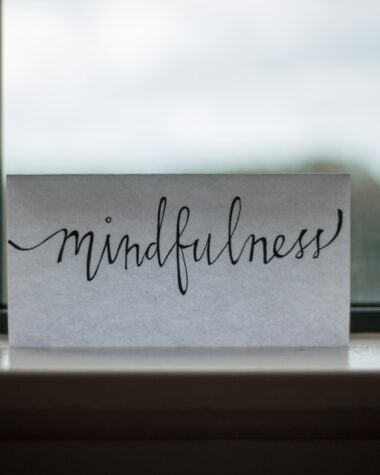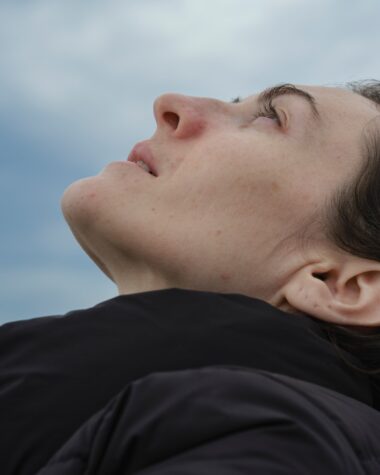The global pursuit of wellness increasingly emphasizes cultural diversity and traditional practices. Every culture has developed unique daily routines, rituals, and habits designed to support physical, mental, and emotional well-being. By exploring these practices, individuals can find inspiration for creating healthier, more balanced lifestyles that combine modern science with time-tested wisdom. Healthy routines from around the world highlight the power of consistency, mindfulness, and connection—whether through diet, movement, or daily rituals that honor the body and mind.
These cultural routines demonstrate that wellness is not one-size-fits-all. From the calming tea ceremonies of Japan to the structured mid-day pauses of Mediterranean countries, each tradition offers practical insights that can be integrated into modern life. Adopting elements from these routines can improve energy, focus, and overall life satisfaction, while fostering appreciation for global diversity and ancient practices that have endured through generations.
1. Japanese Morning Rituals for Mind and Body
The Art of Gentle Movement
In Japan, many people begin their day with light stretching, yoga-inspired exercises, or radio calisthenics known as rajio taiso. These routines are short, deliberate, and focus on improving circulation, flexibility, and mental clarity. Even just ten minutes in the morning primes the body and mind for a productive day, emphasizing balance and controlled breathing.
Mindful Start With Tea
Tea drinking is another integral morning ritual. Green tea, rich in antioxidants, is consumed slowly, often in quiet contemplation or mindful preparation. This simple act encourages presence, reduces morning stress, and provides gentle caffeine for alertness without the jitters associated with coffee.
2. Mediterranean Midday Pauses
Siestas and Rest Periods
Many Mediterranean cultures incorporate a short rest or siesta after lunch. This pause allows the body to digest, the mind to reset, and stress levels to decrease. Even in modern urban life, a brief period of quiet rest or gentle stretching can improve focus and energy for the afternoon.
Shared Meals and Connection
Mediterranean routines often involve sharing meals with family or colleagues. Eating slowly, enjoying conversation, and savoring seasonal foods support both nutritional wellness and emotional connection, reinforcing that health is as much about relationships as it is about diet.
3. Scandinavian Outdoor Activity
Daily Nature Exposure
Scandinavian cultures, particularly in Norway and Sweden, emphasize daily exposure to nature. Activities such as forest walks (friluftsliv), biking, or simple outdoor chores promote physical fitness, improve mood, and boost vitamin D intake. Regular contact with natural environments reduces stress hormones and enhances mental clarity.
Cold-Weather Resilience
Even in winter months, Scandinavians maintain outdoor routines, demonstrating the benefits of adaptation and resilience. Cold exposure, paired with moderate exercise, supports cardiovascular health, immunity, and emotional fortitude, illustrating the mind-body synergy of cultural habits.
4. Middle Eastern Nighttime Practices
Evening Reflection and Prayer
In many Middle Eastern cultures, evening routines often include moments of reflection or prayer. These practices promote mindfulness, gratitude, and emotional regulation, preparing the mind for restful sleep and fostering a sense of spiritual and psychological balance.
Light Evening Meals
Healthy routines often include lighter evening meals, emphasizing fresh vegetables, lean proteins, and whole grains. Consuming easily digestible foods at night supports sleep quality, maintains metabolic health, and prevents unnecessary fatigue or digestive discomfort.
5. Indian Practices for Daily Wellness
Morning Meditation and Breathing
In India, many people begin the day with meditation, pranayama (breath control), or gentle yoga. These routines regulate the nervous system, enhance focus, and strengthen emotional resilience, proving that mental preparation is as vital as physical readiness.
Herbal Rituals and Digestive Health
Herbal teas, warm water with spices, or Ayurvedic tonics are common in morning routines, promoting digestion, hydration, and detoxification. These simple practices highlight the integration of diet and lifestyle to support holistic wellness.
6. East African Walking and Social Rituals
Community-Centered Movement
In countries like Kenya and Tanzania, walking is both a mode of transport and a social activity. Daily walks not only enhance cardiovascular health but also reinforce community bonds, combining physical fitness with social and emotional well-being.
Functional Physical Activity
Routine tasks such as farming, market visits, or chores involve natural movement patterns, contributing to strength, endurance, and coordination without structured exercise programs. This integration of activity into daily life encourages a holistic, sustainable approach to health.
7. Brazilian Rhythm and Dance
Movement as Expression
In Brazil, dance and rhythmic movement are common daily activities, whether through informal social gatherings, morning cardio, or cultural traditions like samba. Dancing enhances cardiovascular health, coordination, and mood, while also offering a joyful, expressive outlet for stress relief.
Mind-Body Connection
Movement in rhythmical patterns engages both cognitive and emotional centers, improving mental clarity, coordination, and emotional expression. This demonstrates that healthy routines need not be purely functional—they can be joyful and socially engaging as well.
8. What NOT to Do When Adopting Cultural Routines
Ignoring Individual Needs
While cultural routines provide inspiration, blindly copying practices without considering personal physical or mental health can be counterproductive. Adaptation is key—modify routines to suit your body, schedule, and environment.
Skipping Consistency
The benefits of these practices stem from regularity, not occasional participation. Inconsistent adoption reduces both physical and psychological benefits, underscoring the importance of integrating rituals into daily life intentionally.
9. Combining Practices for Modern Life
Hybrid Routine Approach
Combining elements from multiple cultures allows for a holistic routine tailored to contemporary needs. A morning meditation from India, a mid-day Mediterranean pause, and a Scandinavian evening walk can collectively enhance physical, mental, and emotional well-being.
Practical Integration
Even small adjustments—like mindful tea preparation, a ten-minute outdoor walk, or evening reflection—can cumulatively improve health outcomes. The key is intentionality, consistency, and enjoyment, ensuring routines remain sustainable and meaningful.
10. The Global Lesson for Wellness
Diversity as a Resource
Exploring healthy routines from around the world demonstrates that wellness is multifaceted. Movement, mindfulness, nutrition, and social connection all contribute to overall health. Cultural diversity offers a rich repository of practices that can inspire adaptable, sustainable routines.
A Balanced Approach to Modern Life
By integrating these global practices thoughtfully, individuals in 2025 can create daily routines that balance mind, body, and spirit. Such routines not only improve physical health but also enhance emotional resilience, cognitive clarity, and overall life satisfaction, proving that wellness transcends borders.
Conclusion
Healthy routines from different cultures provide practical, time-tested strategies for achieving holistic wellness. From Japanese morning rituals to Scandinavian outdoor exposure, Middle Eastern reflection, and Brazilian dance, these practices illustrate the diverse ways humans have nurtured mind, body, and spirit.
Incorporating elements from global traditions into daily life promotes physical vitality, emotional balance, and mental clarity. By learning from these practices and adapting them intentionally, individuals can cultivate a sustainable, joyful, and balanced lifestyle that honors both personal well-being and the rich diversity of human culture.








